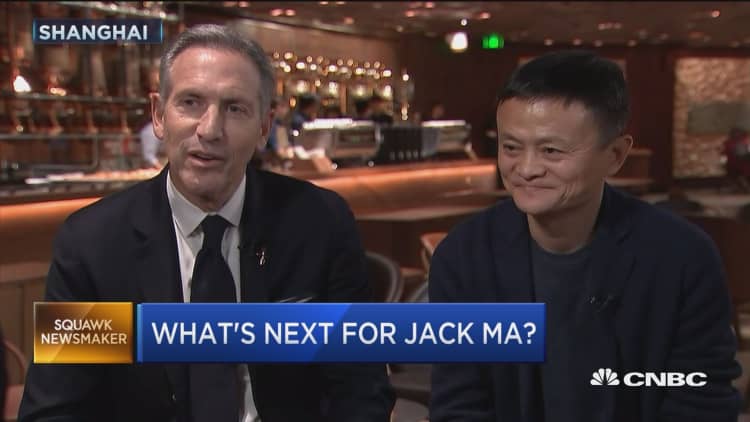Starbucks and Amazon-owned Whole Foods are the latest victims of retail landlords pushing back against companies shuttering stores and trying to bypass contractual agreements.
Recently, the largest U.S. mall owner, Simon Property Group, claimed a high-profile victory in court over Starbucks, which was planning to close 77 of its Teavana stores across Simon's properties. Starbucks previously announced this summer it was planning to shutter all Teavana locations by the spring of 2018, as they were dragging down Starbucks' overall financial performance.
However, an Indiana judge has ruled in Simon's favor, preventing the coffee giant from closing 77 doors or facilitating any "going out of business" or similar sales, court documents reviewed by CNBC showed.
The lease agreements Starbucks originally signed with Simon for the Teavana brand require the tenant to be "open and operating during normal business hours." Some of those 77 leases still extend for up to another decade.
"We are disappointed in the judge's ruling," a Starbucks spokeswoman told CNBC. "Our focus continues to be on finding a resolution."
Then, on Thursday, a Washington court issued a similar ruling against grocery chain Whole Foods, which recently shuttered one of its 365-branded locations in a Bellevue, Washington shopping center, giving that landlord and other surrounding tenants little-to-no notice.
The lease that Whole Foods signed with "Bellevue Square LLC" in 2015 required the grocery chain to carry on business "without interruption" for the first 10 years of the contract. But Whole Foods moved quickly in October to close down that 365 store, neglecting its obligations and citing "site challenges" and underperformance.
The Washington court documents read: "On October 12, 2017, Whole Foods informed its customers via email that it intended to vacate the Leased Premises on October 14, 2017. This is how Bellevue Square learned of the closure."
The landlord added it was personally notified by Whole Foods about the store closing only 15 minutes before the grocery chain kicked off its final liquidation sale. Now, though, the company is being ordered to reopen in Bellevue.
A representative from Whole Foods didn't immediately respond to CNBC's request for comment.
While these kinds of disputes between a tenant and a landlord aren't unusual, they don't typically reach a court and are commonly settled with a big cash payment from the fleeing retailer or other occupant.
"Often in this context the parties will negotiate a mutually acceptable restructuring of the lease obligations, or a consensual lease termination, since a tenant whose business is not fully focused on growth and success, and whose brand is not a positive contributor to sales and traffic, is not in the interest of the landlord or other tenants," Andy Dunn, a partner in Gibson, Dunn & Crutcher's Real Estate Practice Group in New York, told CNBC.
"I'd assume that there are facts not evident from the decision that make the resort to court an unusual result, particularly given the clarity of the law in this general area, rather than a harbinger of new developments in retail operating covenants," Dunn added about the ruling against Starbucks and in Simon's favor.
Though they're less common in nature, these rulings could prompt more retail landlords to flex their legal muscle, especially as more companies choose to restructure and shutter stores rather than go bankrupt altogether.
A bankruptcy scenario would play out differently, as tenants are able to wiggle their way out of leases when a company becomes insolvent.
In a unique situation last year, mall owners Simon and General Growth Properties won an auction to purchase teen apparel retailer Aeropostale after it filed for Chapter 11 bankruptcy protection, making a bid to avoid having to fill more than 200 vacant stores. The two companies have since managed to salvage the Aeropostale nameplate.
To be sure, Starbucks and Whole Foods are both still financially stable. Both brands are growing across the U.S. and overseas, which gives real estate owners more reason to claim their departures are wrongful.
"Mall owners typically have operating clauses in leases that protect them from such situations like Teavana and are enforceable when push comes to shove," Boenning & Scattergood analyst Floris van Dijkum told CNBC.



